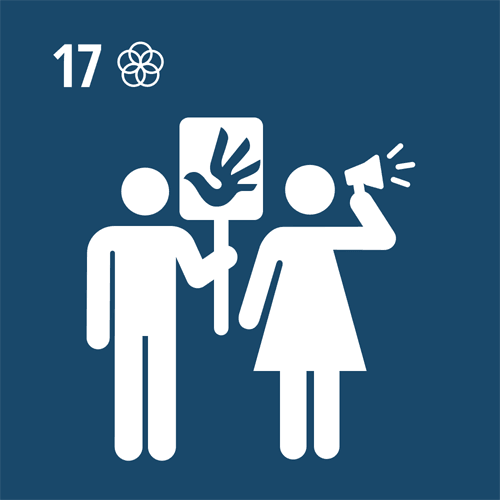Strengthen the means of implementation and revitalise the global partnerships for sustainable development
To address global challenges, it is necessary to mobilise several resources from different stakeholders, namely governments, civil society, private sector, academia, and citizens to come together and establish strong multi-stakeholder partnerships and cooperation at the global, regional, national and local levels.
Technology development, financial resources, and capacity building provided by stakeholders should be used effectively to achieve all SDGs. Capacity building refers to empowering individuals and organisations to enable them to support themselves. Official Development Assistance (ODA) refers to financial aid provided by developed countries for developing countries and it is a measure for aid flow. To build strong and global partnerships, communication is essential, so investments in communication infrastructure are essential to increase internet access and broadband connections.
International cooperation is crucial to support national plans, data collection, and statistical research to fulfil Agenda 2030, to promote investment and help developing countries to increase their exports. Besides, investments in education and learning in developing countries is essential to promote development in the long term.
SDG 17, has a macro perspective about SDGs, however education and in particular vocational training can contribute to the achievement of this SDG, providing students with knowledge, skills, and competencies important for the establishment of partnerships, such as the capacity for mobilisation, negotiation, and cooperation. Schools, in particular vocational schools, are an example of the importance of establishing partnerships mainly with the private sector, to develop internships with students among other activities.









